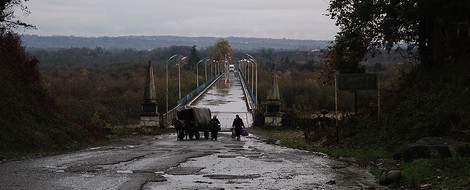Your podcast discovery platform
Curious minds select the most fascinating podcasts from around the world. Discover hand-piqd audio recommendations on your favorite topics.

piqer for: Globalization and politics Global finds
Neil Hauer is an independent analyst focused on Syria, Russia, and the Caucasus. Based in Tbilisi, Georgia, he served as senior intelligence analyst at The SecDev Group, an Ottawa-based geopolitical risk consultancy, for three years. He is presently engaged primarily on Russia’s role in the Syrian conflict.
Abkhazia And South Ossetia: Time To Talk Trade
Given the sex appeal of conflict and geopolitics, it can be easy to lose sight of what is usually the primary driver of civil (and often international) conflicts: economics. Georgia's breakaway regions of Abkhazia and South Ossetia are no exception to this rule and have long been overdue for an in-depth study of the financial and development incentives for Tbilisi/Sukhumi/Tskhinvali/Moscow to reach greater accord. ICG's new report covers this topic in exhaustive detail.
This report, compiled over several years by ICG experts and including dozen of interviews, does as good of a job as anyone reasonably could at breaking down the intricacies of building trade ties between the disparate sides. The concept of three trade corridors running through Georgia to Russia is a helpful framing method, further driven home by anyone who has seen how vulnerable the single existing crossing (Gudauri/Lars) is to weather closures.
Despite harsh rhetoric continuing to flow out of the Georgian and breakaway capitals, serious progress has been made on this issue through using third parties for the most sensitive legal/security aspects of expanded trade. The same holds true to a degree for other avenues of trade: some progress, especially for Abkhazia, but the hurdles still to be crossed are immense. The domestic political costs for GE/SO/AB politicians to be seen compromising or tacitly approving of the other side's position remains insurmountable, to say nothing of Moscow's role, although some leaders indicate more flexibility in private.
Despite this, the incentives are obvious for SO/AB to cooperate to some degree: Russian subsidies to the territories have dropped by over 50% from their peak, and extra cash is sorely needed. ICG offers a number of policy recommendations on this front that GE/SO/AB can pursue, but most of these remain unfortunately vulnerable to Russian interference. A follow-up report exploring to what degree Russia controls the two breakaway states would greatly help.
Stay up to date – with a newsletter from your channel on Globalization and politics.
